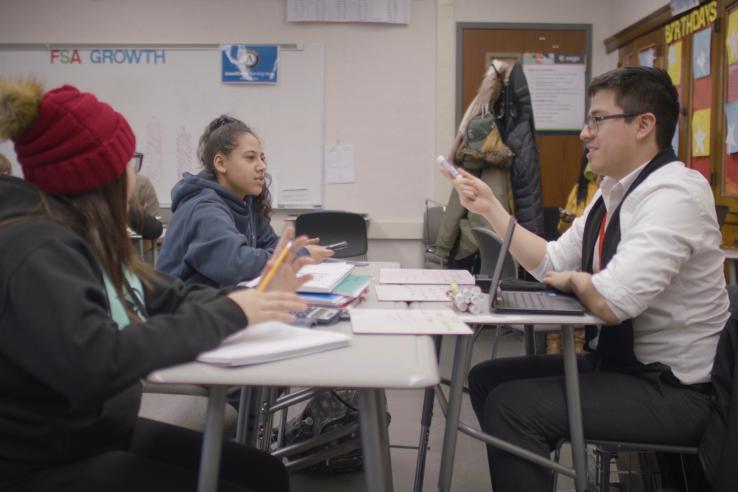December 2020 North America Newsletter

Good morning,
As 2020 draws to a close, I’ve found reflecting on the year to be a complex task. This year presented exceptional challenges and immeasurable grief. Yet, I also found many moments of inspiration and gratitude.
I witnessed our partners admirably pivot in the face of crises to continue to best serve their communities. I also participated in conversations with innovative state, local, and federal leaders who turned to evidence and data to inform swift COVID-19 responses. As just one example, the Institute of Education Sciences at the United States Department of Education is currently leveraging evidence to advocate for a national tutoring strategy to combat COVID-19 learning loss.
The projects highlighted in this newsletter––from a webinar series to support the collection and use of administrative data to our Mobility from Poverty Learning Agenda—are all efforts to strengthen the existing evidence base and data infrastructure built by our partners that will help communities get through the pandemic and effectively respond in moments of crisis in the future.
Thank you for your partnership. I am deeply grateful to be a part of this extraordinary community—this year more than ever.
Mary Ann Bates
Executive Director, J-PAL North America
Leveraging tutoring to combat COVID-19 learning loss
In a year when pandemic-related school closures and remote instruction have taken a major toll on student learning, rigorous evidence points to tutoring as a promising solution to help students catch up. Millions of students are falling months behind as teachers and students continue to struggle with low attendance, rising failure rates, and decreased instruction time. The scale of these challenges demands an immediate and sustained policy response to mitigate learning loss. A large and growing body of research, including J-PAL North America’s meta-analysis of 96 randomized evaluations of tutoring programs, points to tutoring as a highly effective educational tool to support student learning. J-PAL is working to share this evidence with decision-makers at all levels. One idea being discussed is to make evidence-based tutoring widely accessible through a national tutoring initiative. J-PAL collaborated with Mark Schneider, director of the Institute for Education Sciences, to discuss key characteristics of an evidence-based tutoring initiative for The 74. J-PAL Education Co-Chair Phil Oreopoulos shared guidance on how schools can effectively apply tutoring evidence for Scientific American.
Webinar series explores the use of administrative data in social policy research
In our digital world, data is constantly being collected and stored to support the everyday functions of governments, non-profit organizations, and private firms. Commonly known as administrative data, this form of data offers tremendous potential to improve lives through better social policies, but is often underutilized in research. J-PAL’s Innovations in Data and Experiments for Action (IDEA) Initiative is hosting an ongoing webinar series featuring insights from the Handbook on Using Administrative Data for Research and Evidence-Based Policy. Each webinar presents case studies on successful administrative data partnerships and shares technical expertise for data access and use. Upcoming webinars will examine instances of using data to improve social protection and secure data access design. Past webinars cover topics including securing data use approval, working with data not originally designed for research, the challenges of using de-identified data, and more.
New learning agenda draws on insights from state and local leaders to promote upward mobility
Actionable policy research must not only contribute novel insights to the evidence base, it must also align with the interests, priorities, and needs of policymakers on the ground. To aid the efforts of our government partners and research network, our State and Local Innovation Initiative developed a blueprint for future randomized evaluations on strategies to foster upward mobility. The Mobility from Poverty Learning Agenda outlines the core research priorities from state and local governments and J-PAL affiliated researchers, highlights key ongoing or completed evaluations, and identifies opportunities for future research. The pandemic has only amplified racial and economic inequities in our society. These realities further lend urgency to addressing the challenges raised by our state and local partners. We hope this learning agenda can serve as a resource for the broader evidence-based policymaking community to effectively target resources to pressing policy questions that policymakers are grappling with across jurisdictions.